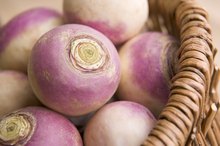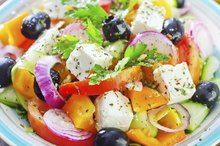What does fact checked mean?
At Healthfully, we strive to deliver objective content that is accurate and up-to-date. Our team periodically reviews articles in order to ensure content quality. The sources cited below consist of evidence from peer-reviewed journals, prominent medical organizations, academic associations, and government data.
The information contained on this site is for informational purposes only, and should not be used as a substitute for the advice of a professional health care provider. Please check with the appropriate physician regarding health questions and concerns. Although we strive to deliver accurate and up-to-date information, no guarantee to that effect is made.
What Food Can You Eat After Stroke?
Nutrition is important for both heart and blood vessel health, and can impact both stroke recovery and health after a person has a stroke 2. While some stroke survivors may have to follow strict dietary guidelines, others are able to eat what they choose. However, choosing healthier foods may help them prevent recurrent strokes.
Significance of Diet
People who have had a stroke may be at risk for a second stroke, especially if they have not made certain lifestyle changes. In addition to getting enough exercise, maintaining a healthy weight, and avoiding tobacco and alcohol, the Cleveland Clinic recommends a healthier diet to reduce the risk of conditions that can lead to stroke 1. Someone who has had a stroke should avoid certain foods when possible to reduce their risk of having another. These include foods high in salt, sugar, cholesterol and saturated fats.
- People who have had a stroke may be at risk for a second stroke, especially if they have not made certain lifestyle changes.
- Someone who has had a stroke should avoid certain foods when possible to reduce their risk of having another.
General Diet Recommendations
Foods for Stroke Patients
Learn More
To maintain circulatory and heart health after a stroke, certain foods are better than others. The Cleveland Clinic recommends whole grains, fruits and vegetables. Fruits and vegetables have many benefits for a person who has had a stroke. Not only are they high in fiber, but they also are packed with nutrients that are important for heart health. Five servings daily is the recommended minimum, and the National Stroke Association reports that citrus fruits and broccoli are among the most important stroke-preventing fruits and vegetables. Whole grains are also high on the list due to their fiber content and fortification with vitamins and minerals.
- To maintain circulatory and heart health after a stroke, certain foods are better than others.
- Five servings daily is the recommended minimum, and the National Stroke Association reports that citrus fruits and broccoli are among the most important stroke-preventing fruits and vegetables.
Important Vitamins and Minerals
While nutrition as a whole is important, a few key nutrients are beneficial for prevention of recurrent strokes 2. These include folic acid, calcium, vitamins B6 and B12, and potassium. Increasing the amount of fruits, vegetables and fortified foods in the post-stroke diet can help. However, the National Stroke Association reports that many people do not get enough folic acid or B vitamins from their diet alone. Increasing certain foods such as lentils, fortified cereals, fish and bananas can help; however, some people may also benefit from taking extra supplements.
- While nutrition as a whole is important, a few key nutrients are beneficial for prevention of recurrent strokes 2.
- Increasing certain foods such as lentils, fortified cereals, fish and bananas can help; however, some people may also benefit from taking extra supplements.
Mediterranean Diet
Proper Diet for Stroke & Diabetes Patients
Learn More
The Mediterranean diet has long been considered a heart-healthy eating plan, and can also benefit a person who has had a stroke. The journal "Stroke" reports that in some cases, a Mediterranean diet can reduce a person’s stroke risk by as much as 60 percent. This diet tends to include healthy oils, such as olive oil and fish, and fewer foods that are high in cholesterol and saturated animal fats. Richly colored fruits and vegetables are high on the list, such as carrots, grapes and blueberries. Other important parts of the Mediterranean diet are fish, balsamic vinegar and canola oil.
- The Mediterranean diet has long been considered a heart-healthy eating plan, and can also benefit a person who has had a stroke.
- This diet tends to include healthy oils, such as olive oil and fish, and fewer foods that are high in cholesterol and saturated animal fats.
Food Consistency
Sometimes after a stroke, the survivor requires a different food consistency. Many people have more difficulty chewing or swallowing after having a stroke. They may require thicker liquids, softer food and ground up meats. In addition, the Cleveland Clinic reports that some people, even those who can swallow, may benefit from diet consistency changes simply to improve their appetite. They suggest moist foods, as well as adequate liquids. In some cases, eating smaller snacks throughout the day may be easier for a person after a stroke.
- Sometimes after a stroke, the survivor requires a different food consistency.
- In some cases, eating smaller snacks throughout the day may be easier for a person after a stroke.
Related Articles
References
- Cleveland Clinic: Role of Nutrition in the Prevention and Treatment of Stroke
- “Stroke"; "Nutrition and Stroke Prevention"; July 27 2006
- Kennedy RE, Howard G, Go RC, et al. Association Between Family Risk of Stroke and Myocardial Infarction With Prevalent Risk Factors and Coexisting Diseases. Stroke. 2012;43(4):974-9.
- Rehkopf DH, Domingue BW, Cullen MR. The Geographic Distribution of Genetic Risk as Compared to Social Risk for Chronic Diseases in the United States. Biodemography Soc Biol. 2016;62(1):126-42.
- Shikany JM, Safford MM, Newby PK, Durant RW, Brown TM, Judd SE. Southern Dietary Pattern is Associated With Hazard of Acute Coronary Heart Disease in the Reasons for Geographic and Racial Differences in Stroke (REGARDS) Study. Circulation. 2015;132(9):804-14.
- Verduzco LA, Nathan DG. Sickle Cell Disease and Stroke. Blood. 2009;114(25):5117-25.
- Zakai NA, Judd SE, Alexander K, et al. ABO Blood Type and Stroke Risk: The Reasons for Geographic and Racial Differences in Stroke Study. J Thromb Haemost. 2014;12(4):564-70.
Writer Bio
Erica Jacques is an occupational therapist and freelance writer with more than 15 years of combined experience. Jacques has been published on Mybackpaininfo.com and various other websites, and in "Hope Digest." She earned an occupational therapy degree from Queen Margaret University in Edinburgh, Scotland, giving her a truly global view of health and wellness.









